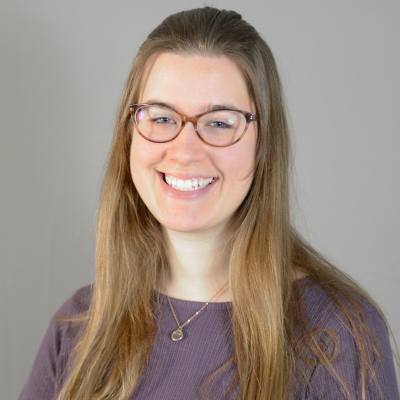Policy leaders point to Texas’ hesitancy to expand Medicaid eligibility—as outlined by the Affordable Care Act passed in March 2010—as a likely contributor to the large uninsured population statewide. Other factors could include a large number of small businesses and independent contractors, the second-highest noncitizen population in the U.S. and a growing population choosing to go without health insurance.
"I think part of that is probably related to people who ... are uninsured because they may be ineligible for existing programs, but I also think it's partly related to the fact that there's a growing number of people that are not finding the value in insurance," said Rep. Tom Oliverson, R-Cypress.
An April 27 report from the Kaiser Family Foundation, an independent health care information nonprofit, shows that 36 states as well as the District of Columbia have adopted Medicaid expansion, and 14 states, Texas among them, are not yet opting to expand Medicaid eligibility.
"The idea under [the ACA] was you would subsidize coverage in the private market on a sliding scale for this really ‘working poor.’ The folks—they’re not deadbeats; they’re not homeless people. They’re just working folks, probably working two, maybe three jobs and just can’t afford health insurance," said John Hawkins, senior vice president for advocacy and public policy with the Texas Hospital Association. “I do think the current situation really changes the playing field [for Medicaid expansion] for a variety of reasons. ... This [legislative] session would be a really good chance to tee that issue up again.”
According to a report from the Kaiser Family Foundation, 1.5 million currently uninsured, nonelderly adults could be covered if Texas expanded Medicaid eligibility. Policy leaders anticipate this figure could still grow amid recent job losses.
“If we were to do Medicaid expansion right now, we would not only pick up a million and half of those adults who are already uninsure, but potentially, the million or more who may have found themselves on the uninsured rolls in the last month or so would have an option,” said Anne Dunkelberg, associate director of the Austin-based Center for Public Policy Priorities, which she said has supported Medicaid expansion since 2012.
Most residents who live in states that have expanded Medicaid and who earn less than 138% of the federal poverty level are covered by Medicaid, according to the Kaiser Family Foundation. In states like Texas that have not chosen to expand Medicaid eligibility, select groups may be covered under Medicaid. In Texas, this includes low-income individuals who are pregnant, who are a parent or relative caretaker of a child under age 19, who have a disability or a family member in the household with a disability or who are age 65 or older, according to Texas Health and Human Services.
Not expanding Medicaid eligibility means residents may find themselves in a coverage gap in Texas but could otherwise be insured in a state that has opted to expand Medicaid, said Adam Johnson, a report analyst at Quote Wizard, which compiled a report on COVID-19 unemployment and its impact on uninsured rates.
“To qualify for Medicaid in an expansion state, it's 138% of the federal poverty line. But in other states, that's typically right at the poverty line, so you do have quite a large population [in] Texas [that] would qualify in another state like New York, but they are left out of Medicaid in Texas but also still have incomes that may not be able to afford them a marketplace insurance policy, as it may be too expensive," he said.
Hawkins said while many states have expanded Medicaid with no strings attached, leading to a straight-up entitlement program, more conservative states have opted to expand eligibility with a working requirement or a small out-of-pocket payment—flexibility that comes via states using a Section 1115 Medicaid waiver to expand eligibility and customize it a bit.
“It’s almost going to be super subsidized, but even if it’s a $5-a-month premium, their argument is [that] at least now, folks have some skin in the game,” he said. “That’s good—for beneficiaries to have skin in the game—because then, they’re going to show up to appointments. They’re going to be better [users] of health care.”
The cost of caring for the uninsured
Hawkins also said expanding health care coverage by significantly subsidizing low-income individuals to purchase health insurance from the private market is better for health care providers, as private companies reimburse health care providers at a higher rate than Medicaid."Those rates are negotiated with those health plans, as opposed to the Medicaid program, where we’re at the mercy of the legislature setting rates. That’s why Medicaid rates are typically pretty low, and providers struggle with [the cost of Medicaid patients]," he said.
Additionally, Hawkins said the cost of caring for the uninsured is high, as hospital emergency rooms are often their only option. With patients having little ability to pay and no insurance provider to reimburse the hospital for a portion of the cost, hospitals take on an uncompensated care burden. State and federal supplemental payments help alleviate some of that burden, and hospitals are required in Texas to reserve a portion of revenue for charity care, but it is not enough, Hawkins said.
“There’s $5 billion or so to help offset uncompensated care, but we report, I think, north of $7 billion to the state, so those funds aren’t able to cover all of the burden," he said.
The cost of uncompensated care, then, can be translated to an increased tax rate if the hospital is part of a hospital district that levies a tax, such as Harris Health System, he said.
Hawkins said he believes expanding health care coverage using subsidies for the private marketplace would benefit health care providers, patients and the state's bottom line.
“It is a big issue for hospitals in Texas. The fact that we lead the nation in the number of uninsured is a fiscal challenge," he said.
Looking ahead
Oliverson, a lawmaker and anesthesiologist, said that while he anticipates Medicaid expansion will be discussed in the upcoming legislative session—slated to resume Jan. 12, 2021—he anticipates redistricting, unemployment and fiscal matters will get more of the focus.“It's a big-ticket item, and the question is, philosophically, whether or not it's appropriate for the state government to be providing free- or reduced-cost health insurance for able-bodied adults who don't currently have coverage through their employer vis-a-vis the Medicaid expansion,” Oliverson said. “I actually think that the biggest problem we have with health care in Texas is not the availability of health care—it's the affordability of health care. ... That's not necessarily a problem that Medicaid is designed to solve because if ... you expand Medicaid, all you've done is basically change who's paying the bill. You haven't done anything to address the cost.”
Oliverson said concerns with the traditional expansion of Medicaid include that fewer than half of Texas physicians accept Medicaid and that expansion of Medicaid would be costly for the state, particularly amid the pandemic and economic downturn, when the state has few funds to spare.
"What happens if you expand Medicaid and you essentially double the number of people who are now on the Medicaid rolls and 50% of your health care workforce doesn't accept those patients? Where are those people going to go?" Oliverson said. "While I do think that there's going to be a strong conversation about health care [in the upcoming session], remember that Medicaid expansion—traditional Medicaid expansion like a lot of my colleagues like to talk about—requires a match, and we're not going to have any money for a match."
However, Dunkelberg, with the CPPP, said she believes the ongoing coronavirus pandemic changes the Medicaid discussion.
“The shape of this disaster may help ... because you have literally millions of Texans who maybe have never been jobless before suddenly overnight being thrown into that situation,” Dunkelberg said. “So when millions of Texans suddenly discover that because they have no income, they don’t qualify for anything, you may have a change in the political pressure."
Adriana Rezal and Hannah Zedaker contributed to this report.





